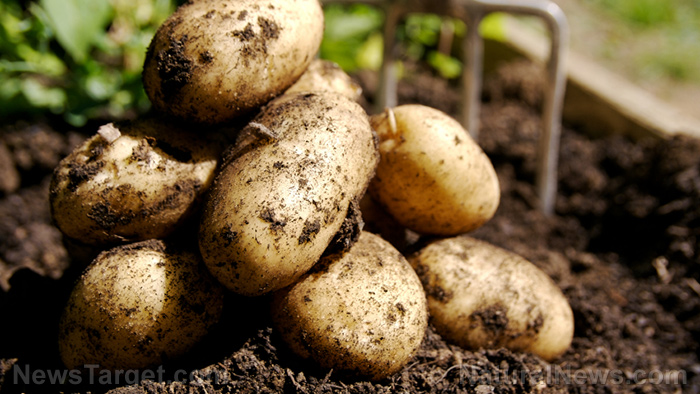
Advertisement
For some people, one of the worst things that could happen to them is to get stuck in a remote area. Thoughts of rural living come to mind – grazing cattle on the pasture, growing your own produce, and pretty much eating the same thing every day. However, this “peasant-style” diet could actually be healthier than an urban diet, a recently published study in the Royal Society of Medical Journals suggests. At least, that would be the argument, if you were living in mid-19th century Britain – which was what the study looked into.
It takes its cues from the results of a study published in The Times in 1864, which found that “a large proportion of [U.K.’s] population [is] existing upon less food than was thought sufficient to avert starvation diseases.” The report added that this phenomenon wasn’t brought about by factors such as the “deserving poverty of idleness,” but by “the hard and bitter poverty of industrial populations.”
In particular, the current paper studied the effects of certain regional diets on the health of poor people at the time, comparing it with available mortality data. It revealed that the “poor laboring population” in remote areas like the west of Ireland and some islands in Scotland were better off than those in the city. According to the study, rural poor in isolated areas had access to locally-produced food items like potatoes, vegetables, whole grains, milk, and fish. Their diet, in turn, resulted in lower mortality rates, according to the study.
As study author Dr. Peter Graves puts it: “The fact that these better-fed regions of Britain also showed lower mortality rates is entirely consistent with recent studies that have shown a decreased risk of death following improvement towards a higher Mediterranean dietary standard.”
This isolation is one thing that people in these rural areas could thank for having better nutrition. These areas were so far, Graves explained, that people were better off getting paid in kind. People in those areas, for example, may have a cow, as well as a field to plant potatoes in. In Ireland, most people lived on “stirabout” – a porridge made from oats and milk, much like how we do it today – and achieved similar results. It wasn’t fancy, but it was better than what people in the city were having at that time. “Milk was expensive and not easily available so they ended up drinking tea with sugar as a substitute, even children,” he added.
The benefits of the so-called “peasant-style” diet were significant, the research stated. Pulmonary tuberculosis, a condition linked to poor nutrition in mid-Victorian Britain, was found to be twice as prevalent in an urban setting. After reviewing death records, Graves found that the annual death rate in industrial areas such as London’s East End was 30 people per 1,000. In comparison, pre-industrial communities in remote areas of Scotland and west Ireland reported only 14 people per 1,000.
These days, it’s rural communities that are faced with challenges. Faced with urbanization, commercial farming, and migration, these communities are in danger of completely being wiped out. “Such changes in Victorian society were forerunners of the dietary delocalization that has occurred across the world which has often led to a deterioration of diversity of locally produced food and reduced the quality of diet for the poor rural populations,” he added.
However, the National Health Service (NHS), U.K.’s public health agency, was more judicious with the results presented by the study. Based on a case analysis by the agency, what the study actually reports is that both populations in the U.K. were more likely to be malnourished and got what little food they had. Still, it recognized that the food choices that were available in rural at the time meant that the risk of developing obesity-related diseases was much lower. (Related: Living in the country can lead to better cancer outcomes, study finds.)
The takeaway, still, remains the same: Eat more fruits and vegetables – and cut back on fats, salt, and sugar.
Interested in the “peasant-style” diet? You can learn even more diet choices that suit you best by going to Detox.news today.
Sources include:
Advertisements







